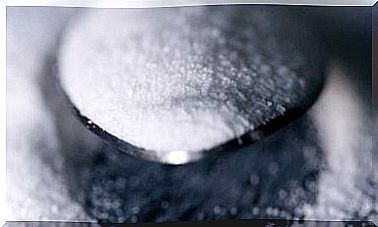Prebiotics, Probiotics … And Now Postbiotics
Discoveries about the functions of the microbiota herald the development of a new generation of therapeutic supplements.

A few years ago, only specialists had the need to know the difference in meaning between the words prebiotic and probiotic. These days it is practically a matter of general culture. But do you know what postbiotics are?
Research underway in the world’s leading laboratories on the microbiota is trying to discover the properties of each type of bacterial population and treatments are being developed based on live bacteria or nutritional supplements to achieve the desired effects.
Postbiotics help prevent and treat diseases
But there is another therapeutic strategy related to the microbiota. Instead of administering live bacteria to the patient, the metabolites that these bacteria produce can be prescribed, which justify their beneficial effects.
Those substances, those metabolites, are the postbiotics. They are not a new invention. Antibiotics are also postbiotic. But currently scientists advance that it is possible to use therapeutically a wide variety of molecules synthesized by bacteria.
The microbiota is distributed throughout the body and most of it (about 100 billion bacteria, viruses, fungi and parasites) is concentrated in the colon. But these figures are approximate.
There’s a “dark microbiome” to discover
Recent studies speak of a “dark microbiome” – like the dark matter of the universe – that would be composed of an indeterminate number of microorganisms belonging to the archaea kingdom.
It is difficult to imagine how many substances with specific functions in the body this almost infinite catalog of life could be producing.
Continual discoveries about the influence of the microbiome on health and disease have opened a new era for medicine.
A pharmacy with thousands of potentially therapeutic postbiotics
The known microbiota already has a genetic heritage that multiplies by 200 the number of genes in human cells. Each gene or set of genes is a factory of thousands of substances that intervene in all physiological processes.
Digestive microorganisms break down bile salts, protein, and fiber to produce vitamins and other cofactors essential for health. They also stimulate immunity, keep the intestinal barrier in good condition and prevent the proliferation of pathogenic bacteria, viruses or fungi.
The good or bad state of the microbiota is related to diseases such as intestinal inflammation, allergies, asthma, diabetes, with central nervous system disorders (depression and autism) or neurodegenerative disorders (Alzheimer’s, Parkinson’s, multiple sclerosis) and even with some types of cancer.
Recent research by Drs Tim Spector and Cristina Meni, from King’s College London, sheds light on the relationship between what we eat, the way food is processed by the microbiota and the way it is transformed into energy or fat that accumulates in the body, especially around the waist.
They can prevent and treat obesity and diabetes
Spector and Meni have analyzed the feces of 500 pairs of twins and discovered more than 800 biochemical compounds produced by the microorganisms. And they have been able to identify the substances that are related to the tendency to accumulate abdominal fat (this tendency implies a greater risk of diabetes and heart disease).
The study authors explain that it is possible to influence the production of these metabolites through the food we eat, which in turn nourishes one or the other microorganisms.
If we select the foods that bacteria that synthesize molecules with a physiological function like, we will be acting on the processes that maintain health.
And when each process becomes well known, it will be possible to take the specific substance as a supplement, as if it were a vitamin or mineral.
Omega-3s stimulate the production of postbiotics
In fact, nutritional supplements already work this way. Spector and Menni have found that omega-3 supplements are beneficial because they help the microbiota produce other substances, such as the metabolite called n-carbamyl glutamate, which has anti-inflammatory properties.
But this beneficial effect occurs only in people with a certain type of microbiota. This is why omega-3 supplements help some people more than others.
Spector and Menni are currently trying to discover postbiotic metabolites that help the body efficiently deal with fats, so that they could be used to treat obesity and diabetes.
Avoid arteriosclerosis
Other research, led by Ana Valdes, from the University of Nottingham, has found that a deficient production of indolepropionic acid by the microbiota is the main cause of hardening of the arteries or arteriosclerosis. The same substance is associated with the risk of diabetes.
Valdes explains that the production of this postbiotic can be increased by consuming more foods rich in omega-3 (such as flax seeds), in fiber (prebiotics, such as fruits, vegetables, nuts, oats, legumes …); probiotic foods or supplements (with live bacteria), or receiving a fecal transplant (this is still an experimental treatment).









